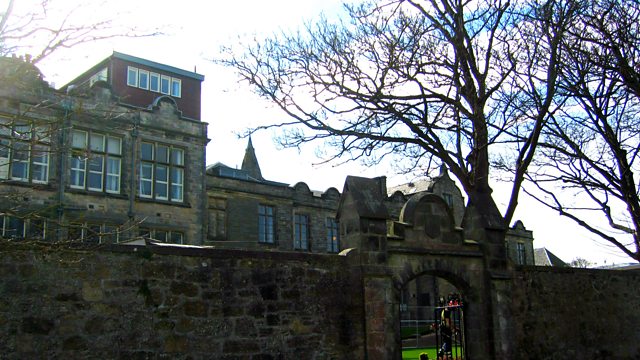St Andrews, Scotland: Sir James Irvine, pioneering WW1 chemist
The story of the pioneering chemical research work carried out by Sir James Irvine at St Andrews University.
At the outbreak of World War One, James Irvine was Dean of Science at St Andrews University. With an urgent need for chemical research, Irvine put the services of the St Andews chemistry department at the disposal of the War Office.
The initial research carried out by Irvine and his team concentrated on the synthesis of sugars that were suddenly unavailable, owing to Germany’s grip on the global pharmaceutical industry. Early success came when Irvine and his team succeeded in synthesising a compound known commercially as Dulcitol – a key component of medicine used to combat typhoid.
Irvine also showed great resource in locating his ingredients: knowing that a certain sugar could be found in dahlia tubers, he put out an appeal for dahlias in the national press. St Andrews was then besieged with supplies of dahlia tubers: even a local boy scout troop was drafted in to help collect the supplies arriving at the local rail station.
In 1917 the nature of the work carried out by Irvine and his team took a new turn. The first use of mustard gas took place in when Germany used it in July 1917 at Ypres.
Two unexploded shells were sent to Irvine for analysis and Irvine was instructed by the War Office to develop the best method for the manufacture of British mustard gas.
Duration:
This clip is from
Featured in...
![]()
Βι¶ΉΤΌΕΔ Radio Scotland—World War One At Βι¶ΉΤΌΕΔ
Places in Scotland that tell a story of World War One
![]()
War at Βι¶ΉΤΌΕΔ
Refugees, internment, training and protest.
More clips from World War One At Βι¶ΉΤΌΕΔ
-
![]()
The loss of HMY Iolaire
Duration: 18:52
-
![]()
Scotland, Slamannan and the Argylls
Duration: 07:55
-
![]()
Scotland Museum of Edinburgh mourning dress
Duration: 06:17
-
![]()
Scotland Montrose 'GI Brides'
Duration: 06:41








